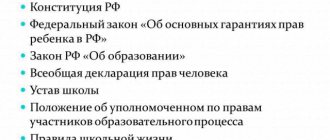How many orphans are there in Russia?
There is not much publicly available information about the number of children in orphanages in Russia. But we managed to find something.
According to the Prosecutor General's Office, from 2021 to 2021. the number of orphans decreased from 44,823 to 39,694 thousand people .
According to official statistics, there are fewer children in Russian orphanages every year.
There are fewer orphans in Russia. Photo: unsplash.com
The growth of paid forms
Immediately after the “Dima Yakovlev Law” came into force, the rate of placement into Russian families increased rapidly over several years. However, then this figure began to decline and no longer increased. Since 2015, the number of children placed in families has been declining, both in absolute and relative terms. “In recent years, we have seen a decline in family structure. This is due to the fact that most of the children who need placement are siblings, these are teenage children, children with various serious health deficiencies,” explains Elena Alshanskaya. The situation could be corrected by foreign adoptive parents, for whom, according to statistics, the age and state of health of the child do not play the same role as for Russians, but by 2021, the country’s international cooperation in the field of adoption was practically eliminated.
But even the “growth” in the number of orphans placed in families that was observed in the first years of the “Dima Yakovlev law” is deceptive. The statistics have improved solely due to paid forms of accepting children into the family, that is, those for which payments are required from the state. This is how the Russian authorities tried to compensate for the departure of foreigners.
For example, monthly payments to adoptive parents and guardians of children with disabilities have increased. In addition, the amount of a one-time benefit in case of adoption of disabled children, children over the age of seven, and blood brothers and sisters has increased to 100 thousand rubles for each child. Monthly payments for children in the family of a guardian/trustee and in foster families also continued to grow. According to the Ministry of Education, in Russia as a whole, the minimum monthly payment for the maintenance of one child in 2013 increased by 6% compared to the previous year, in 2014 - by 10%, in 2015 - by 14%. The amount of monthly remuneration for parents who took a child into a foster or foster family (the same paid form of guardianship) has also increased. In 2013 it increased by 5% compared to the previous year, in 2014 by 10%, and in 2015 by 9%.
But the plan soon stopped working.
Already in 2015, the rate of placement of children in families remained the same as the year before, and then began to decline. In contrast to “paid guardianship,” other forms of adoption of children into families have hardly changed in general statistics.
President of the Volunteers to Help Orphans Foundation Elena Alshanskaya agrees that the surge in adoptions into families occurred precisely due to paid forms of placement. “From my point of view, this is a wrong policy, and, for example, a few years ago there were projects in the Belgorod region when they gave an apartment for taking three children into a family. There is a project in Moscow where they provide an apartment for five children. From my point of view, such initiatives are very vicious and very wrong,” says Alshanskaya.
According to the expert, at first, public attention helped improve the situation with placing children in families. “The growth of family structure after the “Dima Yakovlev Law” was associated with a huge volume of social advertising,” says Alshanskaya. — The main surge was guaranteed by the media. They worked here as a social informant because it was really on everyone's lips. And this led to increased interest in the topic of orphanhood and, perhaps, a guilt complex: how come the Russians don’t take it? And someone thought at that moment that he might be the one to take it.”
How to find a child for adoption
All orphans and children under 18 without parental care are in a special information database - the Federal State Database (FGBD). Information from all regions comes here. With the help of the database, they will find out why the orphan ended up in the orphanage, his character traits, and personal information.
Who has access to the FGBD? Of course, no one will be able to randomly enter the data bank. Guardianship officials are working with him. Only bank operators have access.
You can contact your local department of guardianship and trusteeship and choose a child.
From the personal file you will learn about the physical condition of the orphan. A conversation with your baby will help you decide on adoption.
For what reasons can they refuse?
Failure may be due to various factors. Among them:
- insufficient information;
- persons are included in the category with a ban, in particular temporary, of any nature;
- inaccurate data;
- lack of special training;
- It is not possible to provide all conditions. This includes lack of contact with the adoptee.
Frequent reasons for refusal include incorrectly completed forms or applications. The documentation package must be complete and contain information that certifies that all requirements and rules have been met.
List of papers when adopting a child from the Russian Federation
When collecting a package of documents for adoption, you cannot do without:
- identification document , application and application form of the applicant for adoption;
- copies of the certificate of completion of the training of the future parent. During the courses, foreigners will be told about the adaptation of an adopted child, the intricacies of sex education, and the necessary competencies of a father and mother;
- certificates of a foreign organization for the right to conduct this training;
- document of a Russian citizen at the consular department of the Russian Federation.
The documents of a candidate for guardianship will be accepted only if all of them are translated into Russian. Each must be certified by a Federation notary.
To whom can a child be given for upbringing: requirements for foreign adoptive parents
As with Russian citizens, foreigners are first of all subject to the basic requirement - the potential candidate must be an adult.
A child who is an orphan can be adopted by both a husband and wife, or by one person of any gender who is not or is in a legally registered relationship. People who are not legally married, but live together and are in a relationship, cannot jointly adopt the same child.
The following categories of persons cannot become adoptive parents:
- citizens who have been declared incompetent or partially capable by a court;
- husband and wife, if one of the spouses was declared incompetent or partially incompetent;
- people who, at a court hearing, were deprived of parental rights or had limited rights to their own or adopted child;
- individuals removed from performing the duties of a guardian or trustee. Especially if this happened due to improper fulfillment of the duties assigned by law;
- former adoptive parents, if the adoption in relation to a particular child was annulled or cancelled. We are talking about cases where the guilt of the adoptive parent has been proven;
- citizens who, for health reasons, cannot adopt a child.
It should be noted that there is a list of various diseases established by law, in the presence of which adoption cannot be carried out. These include tuberculosis, mental disorders, drug addiction, substance abuse, alcoholism, and malignant pathologies.
Consideration of an adoption case in court
The next stage is the transfer of the foreigner’s application to the Russian court. An adoption case is considered only if a complete package of documents is submitted. Otherwise, people who are ready to adopt a child from an orphanage will be refused until the papers are in order. In the application, the foreign adoptive parent indicates:
- personal data;
- the reason for the decision to adopt a foster child;
- petition to change the child’s full name;
- information about the existence of relatives of the adoptee;
- place of registration of the child.
The court verifies all information. The meeting, which is attended by a foreigner, takes place over two months. The judicial authority may refuse adoption for various reasons. Foreigners will not receive permission if they do not have enough funds to provide for the baby. Such facts are documented. If they do not have a permanent place of residence, the child will not be given to them either.
Foreigners are obliged to provide the child with complete spiritual, moral, and physical education. Therefore, the court will take into account the religion of the adoptive parent and the child, language and culture, even the difference in age.
There are foreign companies in Russia that provide services for foreigners to adopt children. They help them understand this procedure and act as their representatives. Such organizations cannot lack accreditation. And if, nevertheless, unscrupulous companies try to work without it, the court will simply refuse to adopt the potential parent. Having waited for a favorable outcome (if it is such), the adoptive parent has the right to take the child home.
Once the court makes a decision, the future parent will be given copies of the documents. The foreigner will be given an adoption/guardianship certificate and a birth certificate for the baby.
TO ADOPT A CHILD IN RUSSIA, A FOREIGNER NEEDS TO COLLECT A PACKAGE OF DOCUMENTS AND WIN THE COURT. PHOTO: UNSPLASH.COM
Primary requirements
The law does not impose restrictions on children subject to adoption. No diseases or social factors are an obstacle to the procedure. The only condition specified in Art. 124 of the RF IC prescribes that little Russians whose information is in the Federal Data Bank on children less than 1 year old cannot be adopted by foreigners.
There are many requirements for adoptive parents, most of them also apply to Russians:
- Citizens must reach the age of majority and have legal capacity.
- It is unacceptable to recognize the incapacity of any of the parents, even if it is not complete, but partial.
- Applicants cannot have previously been deprived or limited in parental rights in relation to any child.
- It is unacceptable for adoptive parents to have the court remove the duties of a guardian due to their improper performance.
- The presence of serious diseases is also an obstacle to the procedure.
- The adoptive family must have sufficient official income and their own living space.
- Persons who have or have had previous convictions for committing serious crimes cannot become adoptive parents.
- Applicants must not have any outstanding convictions and must not be under investigation.
Each adoptive parent must undergo special training to officially adopt.
Who and how monitors the child’s new family and the adopted child?
- After the trial, it is important to register the adoption of a Russian child in the registry office. You also need to have time to register the new family member with consular registration in the country where the baby is going to live - this is given 3 months from the date of arrival. By the way, the law does not prohibit the preparation of documents before the child leaves the country. In this case, registration can be done through the Consular Department of the Russian Ministry of Foreign Affairs.
- The place of residence of a little Russian is registered at the consular mission of the Russian Federation. When it changes, it is appropriate for the adoptive parent to inform about it. Afterwards, register the child with the consulate at the new place of residence.
Having gone through all the stages, the foreigner becomes a full-fledged parent. This means that he has the right to change the citizenship of the child. There is a nuance here. If the child is under 10 years of age, the decision on citizenship is made by the mother or father. And parents of children 10 years old and older should take their opinion into account. The child must sign a consent to change citizenship. This is what the Family Code of the Russian Federation says.
Raising a child is a delicate matter, and since the baby is adopted, we must not forget about formalities. For example, until the adopted child becomes an adult, the guardianship authorities will be interested in his life. First, they monitor the child’s living conditions 4 times a year. When the baby lives with new parents for 3 years , control will be reduced to 2 times . Data about the child’s studies, health and family atmosphere are sent to Russia. Photographs are considered evidence.
To create a full-fledged family, children of different ages are chosen. Children who, so to speak, understand everything, do not always know the truth about their parents. And they may not even know that the child’s mother and father are not relatives. In Russia there is a Secret of Adoption . Its disclosure is prohibited by Russian law. Those who, for some reason, revealed the secret to a third party may go to jail.
The state supports people who decide to raise a foster child. They are entitled to payments. Their size varies. What funds will be paid to the “newly made” parent and for what period, he can find out from the Pension Fund. To do this, you need to go there with a passport, an application and a certificate of adoption or guardianship. But this can be done no earlier than six months after the procedure.
Restrictions for adoptive parents
A number of restrictions have been established for adoptive parents, aimed at weeding out persons who cannot provide everything necessary.
Important! Restrictions are divided into standard and special. Special ones are established by additional legislative acts. For example, this applies to the inability of same-sex couples or individuals from certain countries to obtain adoption. All other nuances are standard.
Restrictions apply under the following factors:
- one of the spouses has incapacity;
- there has been deprivation of parental rights or limited guardianship;
- the right has already been revoked previously;
- there are no funds to meet needs, for example, no housing;
- there is an expunged conviction for a serious or especially serious crime;
- there is an outstanding criminal record;
- there is no preparation of a special nature and no document that confirms this fact;
- general health is unsatisfactory;
- There are diseases from a special list, which includes infectious diseases, oncology, addictions of various types, tuberculosis, injuries and diseases that lead to disability.
Read also: Maternity capital for buying a car
A special list of diseases is regulated by the Russian Federation Regulation No. 117 of February 14, 2013.
If there are a number of restrictions, it is necessary to eliminate it and then submit documents for registration again. In the case of diseases, you will need to undergo treatment and prove that this factor has been eliminated and your health has returned to normal.
It must be taken into account that most restrictions lead to a complete ban, that is, the chances of a positive decision are zero.
Decree of the Government of the Russian Federation of February 14, 2013 No. 117 “On approval of the list of diseases, in the presence of which a person cannot adopt a child, take him under guardianship (trusteeship), take him into a foster or foster family”
Who is prohibited from adopting children in Russia
Not all foreign citizens can accept a Russian child into their family. Back in 2014, Prime Minister Dmitry Medvedev tightened the rules for the adoption of Russian orphans by foreigners.
“Persons who are citizens of a state where same-sex unions are permitted and who are not married cannot be adoptive parents,”
the resolution clarifies .
In addition, orphans living in the Russian Federation do not have the opportunity to join an American family. Nine years ago, the Russian government banned US citizens from adopting Russian children due to several cases of child deaths in the States. The reason was the cruel treatment of foster children by parents.
A few more prohibitions that apply to all adoptive parents from abroad:
- The restriction applies to all foreigners declared incompetent and those who have been deprived of parental rights.
- Foreign citizens who have an outstanding criminal record cannot become parents.
- It is prohibited to take guardianship or adopt children for citizens of foreign countries with any addiction, mental disorder, disease with stable remission, as well as disabled people of the 1st group .
NOT ALL FOREIGNERS WILL BE ALLOWED TO ADOPT A RUSSIAN CHILD.
PHOTO: UNSPLASH.COM And it's not all taboo. There is a category of citizens whom guardianship authorities have removed from their duties as guardians. They are prohibited from applying for either guardianship or adoption. This right is limited in several cases.
Firstly , when due to a parent’s illness . It turns out that the father or mother themselves are not to blame for the situation, but their adopted son or daughter will still be taken away from them. Secondly , when parents behave with their child in such a way that living together can become dangerous for the second one . If this behavior continues for at least 6 months, the guardianship authorities will file an application with the court. And if during this time the problem is resolved, the legal representatives will allow you to reunite with the children. This measure, by the way, applies not only to foreigners, but also to citizens of the Russian Federation.
If a foreigner planning to adopt a Russian baby does not fall under any of these points, he can safely fill out papers for adoption/guardianship. Even though this is a long, complex process that requires attentiveness, the desire to become a parent is much stronger.. .
Rules for the adoption of a Russian child by a foreign citizen
Subscribe to Migranta Rus: Yandex News.
Procedure costs
Formally, the adoption procedure is free of charge. The state does not require foreigners to pay state fees, deposits, etc. But in practice, they will still have to pay. Costs include:
- translation and legalization services for documents in a foreign language;
- accompaniment of an interpreter;
- consultations;
- intermediary services and much more.
You have to pay for the period of residence in the Russian Federation, as well as air tickets, and assistance from lawyers. It is believed that the average cost of the procedure for adopting one child for a foreign couple is up to 40-50 thousand dollars.







